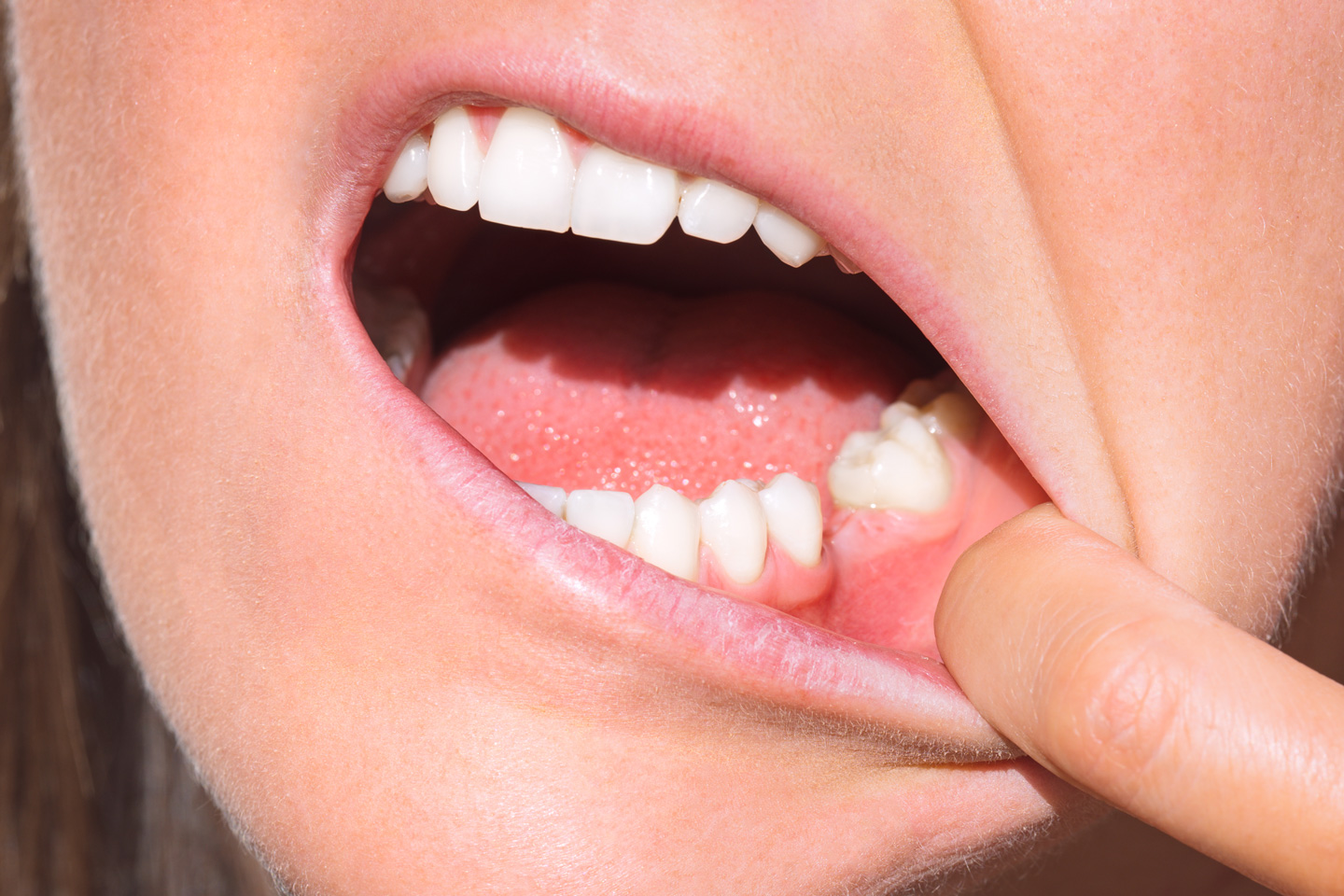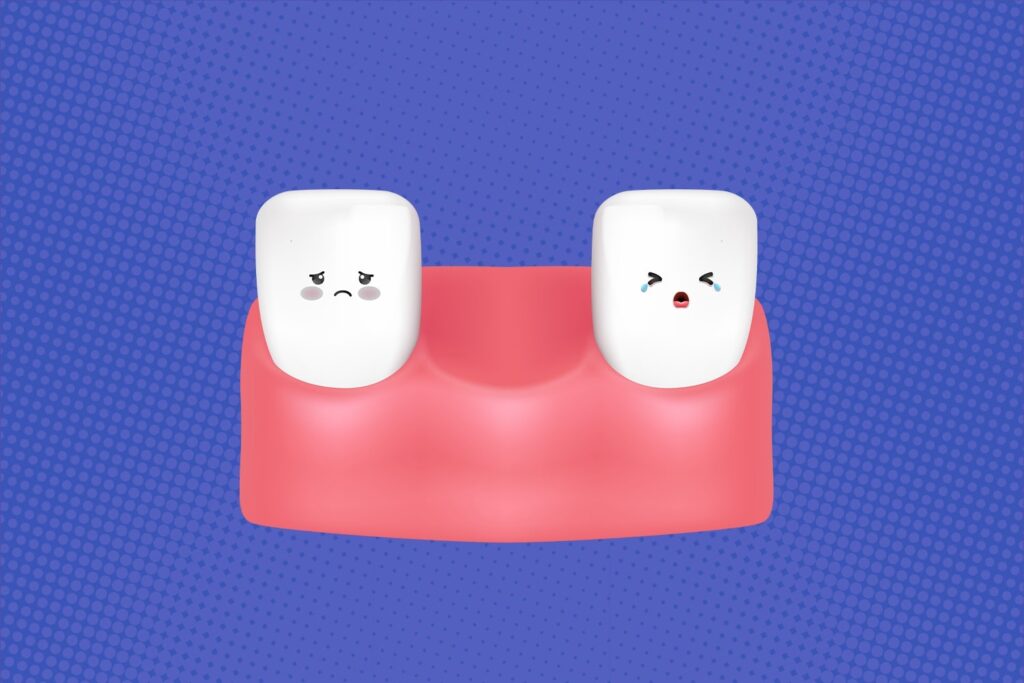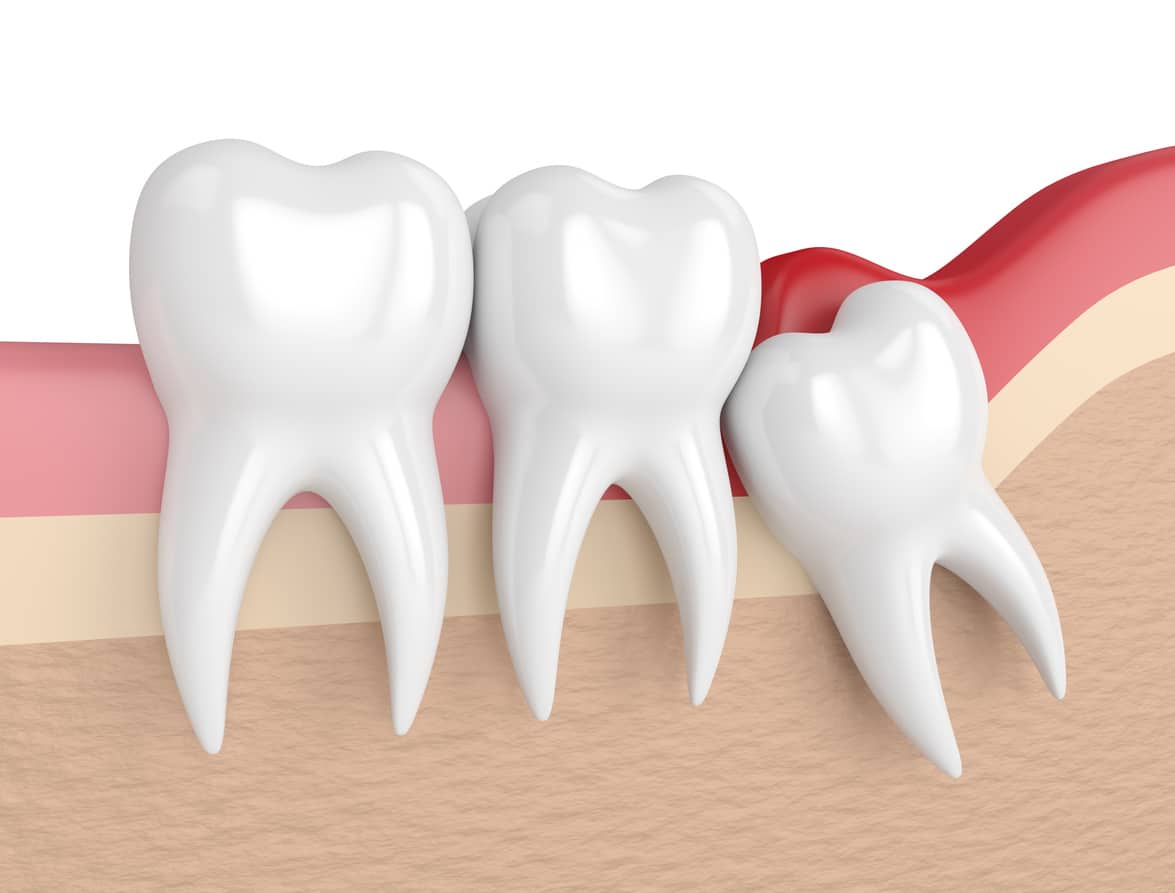It’s normal to feel some pain after a wisdom tooth extraction. But, why do your other teeth hurt too?
After a wisdom tooth extraction, it’s common to experience discomfort. This can extend to your other teeth. The pain you feel could be due to several reasons. The extraction process can cause inflammation in surrounding areas. This inflammation can affect nearby teeth.
It can also lead to a shift in the alignment of your teeth, causing discomfort. Additionally, the nerves in your mouth are interconnected. Pain in one area can sometimes radiate to others. Understanding these causes can help you manage your recovery better. In this blog, we will explore the common reasons behind this pain. We will also discuss ways to ease the discomfort and promote healing.
Common Causes Of Post-extraction Pain
Experiencing pain in other teeth after wisdom tooth extraction can be concerning. Understanding the common causes can help ease your worries. Here, we explore why this happens and what you can expect.
Normal Healing Process
After a wisdom tooth extraction, your mouth undergoes a healing process. This process can cause discomfort in surrounding areas. The body works to close the extraction site, which can affect nearby teeth.
During healing, nerves in the extraction area may signal pain. This pain can feel like it comes from other teeth. It’s a normal part of the recovery process. Your body is simply responding to the trauma of the extraction.
Inflammation And Swelling
Inflammation is a common response after tooth extraction. Swelling can occur around the extraction site, impacting nearby teeth. This swelling can create pressure and cause discomfort in other teeth.
The body’s inflammatory response helps with healing. Yet, it can also lead to temporary pain in surrounding areas. Over-the-counter pain relievers and ice packs can help manage this swelling.
Keeping the area clean and following your dentist’s instructions can reduce inflammation. This care will help minimize the discomfort in other teeth.

Credit: accessdentalclinics.com
Referred Pain Explained
After a wisdom tooth extraction, you might experience pain in your other teeth. This can be confusing. The pain isn’t necessarily coming from those teeth. Instead, it could be referred pain. Understanding referred pain can help you manage your discomfort better.
Understanding Referred Pain
Referred pain happens when pain is felt in an area other than its source. The nerves in your mouth are interconnected. So, pain from a wisdom tooth extraction can travel to other teeth. Your brain might not pinpoint the exact source, leading to confusion.
How It Affects Neighboring Teeth
After extraction, your body undergoes a healing process. The nearby nerves and tissues might become sensitive. This can cause discomfort in the neighboring teeth. They might feel sore or tender. The pain can also spread to the jaw, ear, or head.
Understanding this can help you stay calm. It is a common experience. The pain should lessen as you heal. Always consult your dentist if the pain persists. They can provide guidance and relief options.
Impact Of Tooth Alignment
After a wisdom tooth extraction, you might experience pain in other teeth. This discomfort often results from changes in tooth alignment. When a wisdom tooth is removed, it can create a ripple effect on the rest of your teeth. Understanding these impacts can help you manage the pain better.
Changes In Bite
The extraction of a wisdom tooth can alter your bite alignment. Your teeth may shift slightly to fill the space left by the removed tooth. This movement can cause uneven pressure on your other teeth. As a result, you might feel pain or sensitivity in those teeth.
It’s important to allow your mouth some time to adjust. Over time, your bite should stabilize, reducing the discomfort. If the pain persists, consult your dentist for further evaluation.
Pressure On Adjacent Teeth
When a wisdom tooth is removed, the teeth next to it can feel extra pressure. The removal process can make these teeth more sensitive. This is because they no longer have the support of the wisdom tooth. The adjacent teeth might shift or tilt slightly, causing discomfort.
Here are a few ways to manage this pressure:
- Use an ice pack to reduce swelling.
- Take over-the-counter pain relievers as recommended.
- Avoid hard or sticky foods that can stress your teeth.
- Maintain good oral hygiene to prevent infection.
If your discomfort doesn’t improve, seek advice from your dentist. They can check for any complications and offer solutions.
Role Of Dental Instruments
The role of dental instruments is crucial in wisdom tooth extraction. These tools help dentists perform the procedure efficiently. But they can also affect nearby teeth, causing discomfort or pain.
Force Applied During Extraction
Dental instruments apply force to extract the wisdom tooth. This force can transfer to surrounding teeth. Even though the dentist is careful, some pressure on adjacent teeth is inevitable. This can lead to temporary pain or sensitivity in those teeth.
Effects On Surrounding Structures
The removal process impacts more than just the wisdom tooth. The instruments may touch or press against nearby gums and bones. This can cause inflammation and soreness in the area. The surrounding teeth might feel the impact, resulting in discomfort.
Additionally, dental instruments can sometimes disturb the roots of neighboring teeth. This disturbance can trigger a pain response. The nerves in the area become more sensitive due to the procedure.
Infection And Complications
After a wisdom tooth extraction, it’s common to feel some discomfort. Yet, if other teeth start to hurt, an infection might be the cause. Understanding the signs of infection and how infections spread can help you manage your recovery better.
Signs Of Infection
Recognizing the signs of an infection early can prevent severe complications. Look for these symptoms:
- Persistent pain: If pain remains intense after a few days.
- Swelling: Swelling that doesn’t subside.
- Foul taste: A bad taste in the mouth.
- Fever: A high temperature indicates infection.
How Infections Spread
Infections can spread from the extraction site to other teeth. This happens through:
- Bacteria: Bacteria move from the extraction site to other areas.
- Gum disease: Infected gums can affect nearby teeth.
- Abscess formation: Abscesses can spread the infection.
Maintaining good oral hygiene is crucial. Rinse your mouth with a saline solution. Brush and floss regularly to keep bacteria at bay.
Consult your dentist if you notice any of these signs. Early intervention can save you from more pain and complications.
Nerve Involvement
After wisdom tooth extraction, you might notice pain in other teeth. This can be surprising and confusing. One reason for this pain is nerve involvement. Your mouth is a complex network of nerves. When a wisdom tooth is extracted, these nerves can get irritated or affected.
Nerve Irritation
During the extraction, the surrounding nerves may get disturbed. This can happen even with careful procedures. The nerves in the area can become inflamed. They might send pain signals to other teeth. This is why you might feel pain in teeth that were not touched.
Symptoms To Watch For
Watch for symptoms of nerve irritation. These include sharp or shooting pain in other teeth. You might also feel tingling or numbness in nearby areas. Sensitivity to hot or cold can also be a sign. If these symptoms persist, contact your dentist.
Effective Pain Management
After a wisdom tooth extraction, it’s common for other teeth to hurt. This is due to the pressure and trauma from the procedure. Effective pain management can help ease this discomfort. Here are some methods to consider.
Over-the-counter Medications
Ibuprofen is a popular choice. It reduces inflammation and relieves pain. Follow the dosage instructions on the package.
Acetaminophen is another option. It’s good for pain relief but doesn’t reduce swelling. Always check for interactions with other medications.
Aspirin can also help. But be cautious, as it can increase bleeding. It’s best to consult your dentist before using aspirin.
Home Remedies And Care
Home remedies can be very effective. Try these simple methods:
- Cold compress: Apply an ice pack to the outside of your cheek. This reduces swelling and numbs the area.
- Saltwater rinse: Mix salt with warm water. Rinse your mouth gently to keep the area clean and reduce pain.
- Clove oil: Dab a small amount on a cotton ball. Apply it to the sore area for pain relief.
- Soft foods: Stick to foods like yogurt, applesauce, and mashed potatoes. Avoid hard or chewy foods that can irritate the area.
Rest is also important. Avoid strenuous activity to allow your body to heal. Keep your head elevated with pillows to reduce swelling. Drink plenty of water to stay hydrated.
By following these tips, you can manage your pain effectively and promote healing. Always consult your dentist if your pain persists or worsens.

Credit: somosdental.com
When To Consult Your Dentist
Experiencing pain in other teeth after a wisdom tooth extraction can be alarming. While some discomfort is normal, persistent pain or signs of complications may require a visit to your dentist. Knowing when to seek professional help can prevent further issues and ensure a smooth recovery.
Persistent Pain
Persistent pain in your other teeth after a wisdom tooth extraction should not be ignored. If the pain lasts more than a week, it’s time to consult your dentist. The pain could indicate an underlying issue that needs attention.
Here are some common reasons for persistent pain:
- Dry Socket: This occurs when the blood clot at the extraction site dislodges.
- Infection: Bacteria may infect the extraction site, causing pain.
- Nerve Damage: Rarely, the procedure can impact nearby nerves.
Each of these conditions requires professional treatment. Your dentist can provide the necessary care to alleviate the pain and address the root cause.
Signs Of Complications
Besides persistent pain, certain signs indicate complications that need immediate dental attention. Recognizing these signs early can help prevent further issues.
Watch for the following symptoms:
- Swelling: Excessive swelling in the gums or face.
- Fever: A high fever may indicate an infection.
- Foul Taste: A bad taste in your mouth can signal infection.
- Bleeding: Continuous bleeding from the extraction site.
If you experience any of these symptoms, contact your dentist immediately. Early intervention can prevent severe complications and ensure a quicker recovery.
In summary, while some discomfort is normal after a wisdom tooth extraction, persistent pain or signs of complications should prompt a dental consultation. Being proactive about your dental health can help you recover swiftly and avoid further issues.

Credit: www.pickettfamilydental.com
Frequently Asked Questions
Why Do Other Teeth Hurt After Wisdom Tooth Extraction?
Your other teeth may hurt because of referred pain. It is common after dental procedures.
How Long Will The Pain Last?
Pain usually lasts a few days. If pain persists, consult your dentist.
Can Wisdom Tooth Extraction Affect Nearby Teeth?
Yes, it can cause temporary discomfort in nearby teeth. This is normal and should subside.
What Can I Do To Relieve The Pain?
Use pain relievers, ice packs, and rest. Follow your dentist’s care instructions.
Is It Normal To Have Jaw Pain After Extraction?
Yes, jaw pain is common. It happens due to the pressure applied during extraction.
Conclusion
Experiencing pain in other teeth after wisdom tooth extraction is common. This discomfort usually fades over time. Good oral care helps speed up recovery. If pain persists, consult your dentist. They can check for any complications. Keep following your dentist’s advice for a smooth healing process.
Remember, patience is key. Your mouth needs time to heal properly. Stay positive and take it easy. Soon, you’ll feel better and pain-free.
